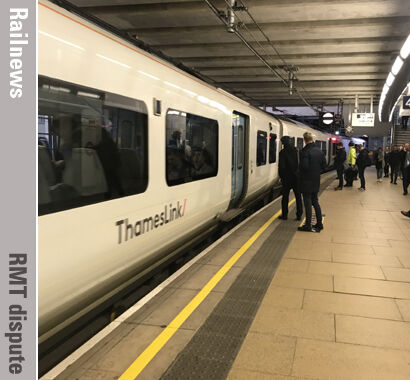The long series of strikes involving the RMT is over, after 18 months of walkouts.
A new ballot of members has shown that a majority are in favour of accepting the latest pay offer from the operators.
The union’s general secretary Mick Lynch said: ‘Our members have spoken in huge numbers to accept this unconditional pay offer and no compulsory redundancies until the end of 2024.
‘I want to congratulate them on their steadfastness in this long industrial campaign.
‘We will be negotiating further with the train operators over reforms they want to see. And we will never shy away from vigorously defending our members’ terms and conditions, now or in the future.
‘This campaign shows that sustained strike action and unity gets results and our members should be proud of the role they have played in securing this deal.’
The first response came from transport secretary Mark Harper, who said: ‘This is welcome news for passengers and a significant step towards resolving industrial disputes on the railway, giving workers a pay rise before Christmas and a pathway to delivering long overdue reforms.’
The Rail Delivery Group said: ‘This welcome vote from RMT members will unlock a pay rise for our people, and means that fair agreements have now been reached with three out of the four unions involved in the recent industrial dispute.
‘Unfortunately, the ASLEF leadership’s decision to call further industrial action means passengers still face disruption between 1-9 December, despite an offer remaining on the table which would see basic driver salaries increase from £60k to £65k for a four-day week.
‘We want to reach a fair agreement which will get more trains running on time and put the railway on a sustainable footing, at a time when taxpayers are contributing an extra £54 million a week to keep services running post-Covid. Instead of staging more damaging industrial action, we call on ASLEF to work with us to resolve this dispute for the long-term good of everyone who works in rail and the millions of businesses and passengers who rely on it every day.’
The results of the ballot, as published by the RMT, show that there was a majority in favour of a settlement of almost 90 per cent, with 13,454 at 14 train operators in England voting ‘yes’ and 1570 ’no’.


